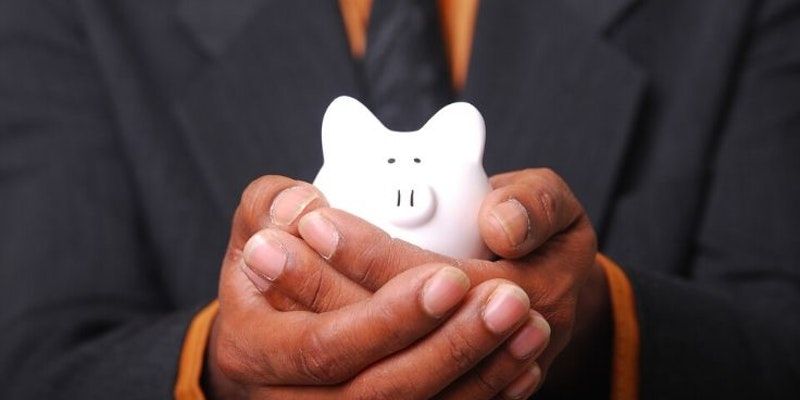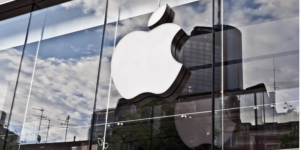
Remember 2023’s obsession with ‘quiet luxury’? Logo-less cashmere and sky-high prices veiled a harsh reality: a cost-of-living crisis squeezing wallets and fueling anxieties. But in 2024, a defiant GenZ whisper ripples through social media–loud budgeting.
This bold trend rejects the secrecy surrounding personal finances. Loud budgeting is all about unapologetic frugality, open talks about budgets with friends and family, and prioritising financial goals like a boss. In the words of its TikTok trend-setter, Lukas Battle, “It’s not ‘I don’t have enough,’ it’s, ‘I don’t want to spend.”
Like ‘girl math’ and other buzzy trends, this resonates with Gen Z. But this extends beyond a simple hashtag. Loud budgeting is about being accountable for self-finances, resisting the glitter of a high lifestyle, and building financial camaraderie.
So, are you ready to ditch the guilt and embrace the freedom of loud budgeting? Join the growing movement, declare your financial goals to the world, and watch your savings soar. Read along.

What is loud budgeting?
Emerging in early 2024, this GenZ finance trend gained traction on platforms like TikTok, with one video garnering over 1.4 million views. At its core, loud budgeting is a financial strategy emphasising open communication about financial goals and prioritising them over societal pressures to spend.
Unlike the ‘quiet luxury’ trend of 2023, which was a subtle flaunting of expensive, logo-less goods, loud budgeting takes a radically different approach. It actively rejects the influence of social media-driven comparison culture and FOMO. This ‘flex culture’ of unwrapping hauls, luxury cars or makeup has led to anxieties and financial strain, particularly for younger generations.
The essence of loud budgeting lies in shifting the focus from conspicuous spending to mindful allocation of resources. This may involve declining expensive dinners or vacations in favour of saving for long-term goals like debt repayment, emergency funds, or retirement.
What do the finance experts say?
Personal finance experts are embracing this trend, highlighting its potential benefits. Financial literacy, reduced debt, and increased savings are just some of the potential outcomes. Moreover, fostering greater authenticity and rejecting the pressure to constantly compare oneself to others can contribute to improved mental well-being.
An expert summarises loud budgeting as–
“A financial strategy characterised by the vocal and intentional allocation of funds towards personal aspirations and valued experiences, often to friends or family. It prioritises the allocation of resources towards personal goals and future-oriented investments that you value. Most importantly, it involves a conscious decision to reject societal pressures and expectations of conspicuous consumption in favour of personal financial values, meaningful experiences and long-term well-being.”
Cultural relevance in a post-pandemic world
In the aftermath of the global pandemic, there has been a fundamental shift in consumer priorities, with individuals increasingly gravitating towards meaningful, value-driven lifestyles. Loud Budgeting stands at the forefront of this paradigm shift, advocating for financial choices that mirror a deeper understanding of life’s true priorities. This resonates profoundly in our current cultural climate.
Apart from this, loud budgeting corresponds to–
Sustainability and cruelty-free fashion
The growing emphasis on sustainability and ethical living seamlessly aligns with the core principles of loud budgeting. Encouraging thoughtful spending that extends beyond personal benefit to consider broader societal and environmental impacts, loud budgeting addresses contemporary values. This positions loud budgeting as a particularly relevant and attractive trend for 2024.
A universal appeal
A notable feature of loud budgeting lies in its universal appeal, transcending age, income levels, and diverse backgrounds. Its flexible and adaptable approach to personal finance makes it accessible to a wide array of individuals.
Is loud budgeting effective in managing finances?
The question of whether loud budgeting proves effective is a subject of consideration. However, the value of loud budgeting lies in its ability to reframe a missed opportunity into a positive action directed towards achieving long-term goals. Elizabeth Schwab, Program Chair of the Behavioral Economics and Business Psychology Divisions at The Chicago School, underscores its positive impact– “Prioritising savings and doing it proudly seems like a great idea,”
Schwab emphasises the importance of balancing between allocating funds to savings and indulging in activities that bring joy and fulfilment to one’s life. While prioritising savings is commendable, an excessive decline in social engagements can have adverse effects on one’s social and emotional well-being.
Maintaining an organised approach to savings and diligently tracking financial goals is crucial for achieving this delicate balance. Consider using a savings account with customisable “buckets” for distinct goals.
You can also use varied apps, and spreadsheets, or make simple notes on a phone, which allows you to articulate the objectives, estimated costs, and planned financial strategies. With this information, you can make informed decisions when faced with social invitations. Life’s all about maintaining the buoyancy of ‘Yes!’ and ‘No’.
Loud Budgeting goes beyond being a mere financial strategy; it’s a lifestyle choice that urges us to reevaluate our relationship with money. So, why not give it a try in “no spend 2024”?






![Read more about the article [Funding alert] Electric mobility platform MetroRide raises undisclosed amount in seed round](https://blog.digitalsevaa.com/wp-content/uploads/2021/08/Untitleddesign-1628748374441-300x225.png)



